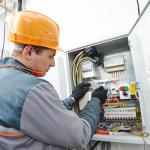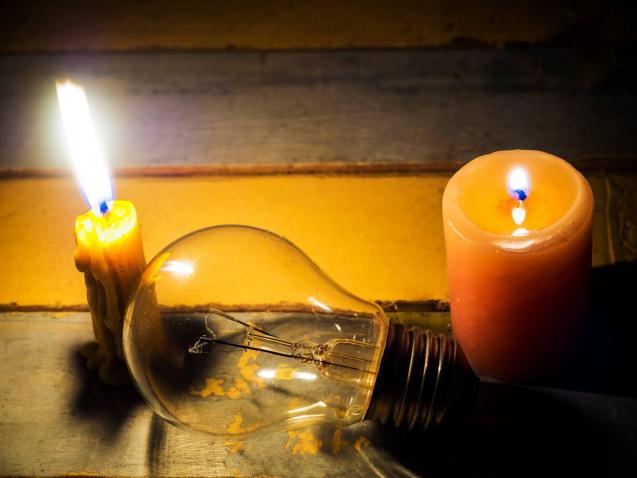
Essential Electrical Maintenance Tips for Australian Homeowners
By Captain Cook Electrical|February 15, 2024
Electrical maintenance covers broader aspects than merely turning switches on and off or replacing an expired bulb. It is a necessary practice for homeowners, promoting safety around the house and saving you from unplanned and costly electrical repairs. This comprehensive guide will arm you with handy tips on how homeowners can effectively maintain and troubleshoot their residential electrical systems. According to the Fire and Emergency Services Authority in Australia, approximate 20% of residential fire incidences are traced back to electrical faults. Therefore, achieving safety in your home's electrical aspect entails having an in-depth understanding of Australia's electrical system, familiarising yourself with the set standards and adhering to them strictly. On this premise, we've dedicated this article to extensively illuminate on this.
Australia's Electrical System and Safety Standards: What You Should Know
Australia's electrical system operates on an alternating current standard, adopting a nominal voltage of 230 volts with a frequency of 50Hz. This system ensures the safe flow of electricity from the power source to the devices connected to it in your home. As a responsible homeowner, it is crucial to understand the regulations set by the Australian Electrical Regulatory Authorities Council, which oversee all electrical repairs and installations in the country. No task is too small for disregard; even simple tasks such as light switch installations must comply with the regulations. The underlying aim is safety when dealing with electrical appliances and components to minimise the risk of accidents. Disobedience to these initiatives can result in painful penalties or imprisonment.
Regular Inspections: An Integral Aspect of Maintaining Your Electrical System
Proactive electrical maintenance involves regular inspections to identify faults in your home's electrical system and correct them before they escalate into significant issues. Oftentimes, homeowners ignore minor faults, which eventually become major problems, leading to injuries or causing significant damage to property. The scope of these problems is extensive, including dangers of overloading, exposed wires, troubleshooting safety switch issues, to mention a few. A thorough inspection at intervals of five years or even during the acquisition of a new home is highly beneficial. Look for professionals who have licensing, good experience, positive past work records, and satisfactory customer reviews while hiring one for comprehensive inspections.
Do-It-Yourself Maintenance Tips
While professionals are highly important, getting familiar with basic electrical maintenance is crucial for safeguarding your home's components in-between routine inspections. It helps you interact with electrical components safely, and it’s beneficial in maintaining the longevity of your home's electrical assets. These tips include routine cleaning of electrical outlets and always wearing rubber gloves for safety. If you need to dabble with any component, never skip turning off the power at the circuit breaker. Insulated tools, such as screwdrivers, are safer while adjusting any component. When dealing with lighting systems, always double-check the wattage of your replacement bulb to prevent overheating. Proper labelling and tying up of wires also reduces the risk of accidents and makes it easier to manage and upgrade your system without confusion.
Signs of Electrical Issues You Should Not Overlook
Keeping a keen eye for potential red flags can help you arrest electrical problems in their budding stage. Common indications include frequent circuit breaker tripping, unexplained high electricity bills, heat or discolouration in switch plates, and flickering or dimming lights. If you observe any of these warning signs, waste no time in acting decisively. Ignoring these warnings often results in massive electrical failures that cause a catastrophe, endanger the safety of your family, and incur extra costs in damages. If these issues persist even after performing minor troubleshooting, consulting a professional electrician becomes an absolute necessity.
The Value of Choosing a Reliable and Certified Electrician
Hiring a reliable and certified electrician is fundamental in maintaining your home's electrical system. These professionals are equipped with the right knowledge and expertise to offer tailored solutions to your home's electrical needs. Their familiarity with the electrical code ensures that they operate strictly within it, delivering safe and compliant services. Word-of-mouth recommendations from trusted acquaintances and checking online reviews are some ways to find an experienced electrician. Moreover, always seek and verify the licence and certification of your chosen electrician with the relevant regulatory bodies. A written quote from the electrician stating all costs and type of work involved ensures transparency and helps you plan your budget well beforehand. The cost of hiring an electrician varies depending on the complexity of the job at hand and the level of experience they bring to your problem.
In Conclusion
In conclusion, electrical maintenance plays a very critical role in safeguarding Australian homes against the potential dangers brought about by fires and electrical failures. Maintaining electrical systems entails regular in-depth inspections, comprehensive knowledge of the country's electrical system, employing qualified electricians, and never playing down any warning signs of electrical hazards. Overlooking any red flags can lead to disastrous consequences. With vigilance and professional support, you can maintain a safe electrically-compliant home environment. A well-maintained electrical system not only gives you the reassurance that your home is safe but also promises a smoother and trouble-free daily life. Remember, the safety and wellbeing of your family is your priority and should not be compromised, no matter how grave or minor an electrical situation appears.
Australia's Electrical System and Safety Standards: What You Should Know
Australia's electrical system operates on an alternating current standard, adopting a nominal voltage of 230 volts with a frequency of 50Hz. This system ensures the safe flow of electricity from the power source to the devices connected to it in your home. As a responsible homeowner, it is crucial to understand the regulations set by the Australian Electrical Regulatory Authorities Council, which oversee all electrical repairs and installations in the country. No task is too small for disregard; even simple tasks such as light switch installations must comply with the regulations. The underlying aim is safety when dealing with electrical appliances and components to minimise the risk of accidents. Disobedience to these initiatives can result in painful penalties or imprisonment.
Regular Inspections: An Integral Aspect of Maintaining Your Electrical System
Proactive electrical maintenance involves regular inspections to identify faults in your home's electrical system and correct them before they escalate into significant issues. Oftentimes, homeowners ignore minor faults, which eventually become major problems, leading to injuries or causing significant damage to property. The scope of these problems is extensive, including dangers of overloading, exposed wires, troubleshooting safety switch issues, to mention a few. A thorough inspection at intervals of five years or even during the acquisition of a new home is highly beneficial. Look for professionals who have licensing, good experience, positive past work records, and satisfactory customer reviews while hiring one for comprehensive inspections.
Do-It-Yourself Maintenance Tips
While professionals are highly important, getting familiar with basic electrical maintenance is crucial for safeguarding your home's components in-between routine inspections. It helps you interact with electrical components safely, and it’s beneficial in maintaining the longevity of your home's electrical assets. These tips include routine cleaning of electrical outlets and always wearing rubber gloves for safety. If you need to dabble with any component, never skip turning off the power at the circuit breaker. Insulated tools, such as screwdrivers, are safer while adjusting any component. When dealing with lighting systems, always double-check the wattage of your replacement bulb to prevent overheating. Proper labelling and tying up of wires also reduces the risk of accidents and makes it easier to manage and upgrade your system without confusion.
Signs of Electrical Issues You Should Not Overlook
Keeping a keen eye for potential red flags can help you arrest electrical problems in their budding stage. Common indications include frequent circuit breaker tripping, unexplained high electricity bills, heat or discolouration in switch plates, and flickering or dimming lights. If you observe any of these warning signs, waste no time in acting decisively. Ignoring these warnings often results in massive electrical failures that cause a catastrophe, endanger the safety of your family, and incur extra costs in damages. If these issues persist even after performing minor troubleshooting, consulting a professional electrician becomes an absolute necessity.
The Value of Choosing a Reliable and Certified Electrician
Hiring a reliable and certified electrician is fundamental in maintaining your home's electrical system. These professionals are equipped with the right knowledge and expertise to offer tailored solutions to your home's electrical needs. Their familiarity with the electrical code ensures that they operate strictly within it, delivering safe and compliant services. Word-of-mouth recommendations from trusted acquaintances and checking online reviews are some ways to find an experienced electrician. Moreover, always seek and verify the licence and certification of your chosen electrician with the relevant regulatory bodies. A written quote from the electrician stating all costs and type of work involved ensures transparency and helps you plan your budget well beforehand. The cost of hiring an electrician varies depending on the complexity of the job at hand and the level of experience they bring to your problem.
In Conclusion
In conclusion, electrical maintenance plays a very critical role in safeguarding Australian homes against the potential dangers brought about by fires and electrical failures. Maintaining electrical systems entails regular in-depth inspections, comprehensive knowledge of the country's electrical system, employing qualified electricians, and never playing down any warning signs of electrical hazards. Overlooking any red flags can lead to disastrous consequences. With vigilance and professional support, you can maintain a safe electrically-compliant home environment. A well-maintained electrical system not only gives you the reassurance that your home is safe but also promises a smoother and trouble-free daily life. Remember, the safety and wellbeing of your family is your priority and should not be compromised, no matter how grave or minor an electrical situation appears.



